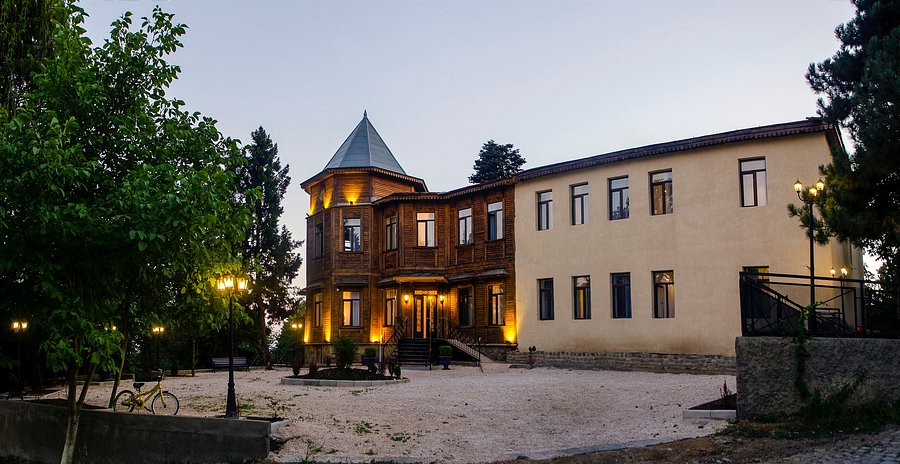
Georgia has emerged over the past decade as one of the most attractive real estate destinations in Eastern Europe and the South Caucasus. With liberal property laws for foreigners, relatively low prices compared with Western Europe, improving infrastructure and a growing tourism sector, both individual buyers and institutional investors are paying attention. This article offers a practical overview of the market, the legal and administrative process, attractive locations, and tips to reduce risk when buying or managing property in Georgia.
Market overview: After economic reforms and a focus on ease of doing business, Georgia’s property market has seen steady demand. Tbilisi, the capital, remains the focal point for residential, commercial and mixed-use developments. Coastal cities such as Batumi have experienced rapid development driven by tourism and seaside projects. Smaller regional centers and mountain areas attract buyers seeking holiday homes, retreats, or rental properties targeting seasonal visitors. Prices vary significantly: central Tbilisi condos command higher per-square-meter rates, while rural and mountainous areas are much more affordable.
Who buys property in Georgia? Foreign buyers from neighboring countries, Western Europe, the Middle East and Asia have been active. Some buy residential units for relocation or retirement, others purchase properties for short-term rentals in tourist areas. Developers and funds look for value-add opportunities in underutilized urban plots, hotel conversions, and hospitality projects near the Black Sea. The openness of Georgia’s market and simple registration procedures make foreign ownership straightforward compared to many countries.
Legal framework and ownership rights: Georgian law allows foreigners to buy and own real estate, including land with some exceptions for agricultural land and specific national-security zones. Titles are recorded at the Public Registry, which provides transparent and reliable property records. Before signing an agreement, buyers should check the registry for encumbrances, mortgages, easements, and the exact legal description of the plot or unit. Purchase contracts commonly include conditions for deposit, completion, and transfer of title. Notarization of contracts and registration of title transfers at the Public Registry are essential final steps.

Due diligence and risk management: Conducting thorough due diligence is critical. This includes verifying the seller’s legal title, confirming that planning permissions and building permits are valid, checking construction completion certificates for apartments, and confirming utility connections. In the case of off-plan purchases, review developer credentials, track record, and contractual guarantees such as bank guarantees or escrow arrangements. Always use a local lawyer experienced in real estate to review documents and advise on tax and corporate structuring if you plan to hold property through a company.
Taxes, fees and costs: Georgia offers a comparatively tax-friendly regime. There is no annual property tax for most residential properties, and stamp duty or transfer taxes tend to be low or absent for standard residential transactions. However, VAT may apply to commercial transactions and new developments in certain circumstances. Rental income is taxable and must be declared; there are simplified tax regimes for small landlords and entrepreneurs that can be advantageous. Notary fees, registration fees at the Public Registry and legal fees should be budgeted as part of transaction costs.
Residency and immigration: Buying property in Georgia does not automatically grant residency, but real estate buyers may be eligible for temporary residence permits under certain conditions, such as investment thresholds. Georgia also offers a relatively straightforward visa regime for many nationalities that allows extended stays for property visits, business, or remote work. Those considering long-term relocation should consult immigration specialists to understand the options and requirements.
Financing and payment: Local banks offer mortgages to residents and select foreigners, though loan-to-value ratios and interest rates differ between lenders. Some developers provide staged payment plans for off-plan projects. Foreign buyers often prefer a mix of cash and bank financing. Payments into escrow accounts or via notarized agreements provide additional protection. Currency considerations are relevant: while the Georgian Lari (GEL) is the national currency, many contracts and bank accounts can be denominated in euros or dollars for convenience when dealing with international buyers.
Popular locations and investment themes: Tbilisi remains the primary market for capital appreciation and consistent rental demand, especially in central neighborhoods, modern gated communities, and areas close to business districts. Batumi and other Black Sea towns attract tourists and seasonal renters, making them strong candidates for holiday rentals and short-term letting strategies. Mountain regions such as Kazbegi or Bakuriani are popular for ski and nature tourism investments. Mixed-use projects and boutique hotels also appeal to investors targeting the hospitality sector, benefiting from the country’s growing tourist numbers.

Property management and rentals: If you plan to rent out a property, consider engaging a professional property manager to handle bookings, maintenance, cleaning, local taxes, and guest communications. Short-term rentals require active management and marketing; they can produce higher yields but are sensitive to seasonality and market competition. Long-term rentals offer more stable income with less intensive turnover management. Understand local regulations related to short-term rentals, condominium rules, and community fees in apartment complexes.
Negotiation and closing: Negotiation in Georgia typically involves offers and counter-offers; buyers should be prepared to provide proof of funds or a deposit to secure interest. A standard process includes signing a preliminary agreement with a deposit, completing due diligence, finalizing a sale-purchase agreement, and registering the transfer at the Public Registry. Notarization and the presence of legal representatives reduce risk. For new developments, confirm the handover process and obtain all completion documentation before final payment.
Common pitfalls to avoid: Avoid purchasing without title verification or a clear construction completion certificate. Beware of unrealistic promised yields without supporting market analysis. Confirm that utility services are available and that there are no outstanding municipal debts associated with the property. For off-plan purchases, verify developer reputations and contractual safeguards. Finally, ensure that contracts are understood in both local and an agreed foreign language version to prevent misunderstandings.
Sustainability and future outlook: Georgia’s strategic position between Europe and Asia, its improving transport links, and favorable business environment support steady long-term prospects for real estate. Urban renewal and international tourism should continue to stimulate demand in key centers, while government reforms may further simplify investment processes. Investors who focus on quality, compliance with local regulations, and professional management are best positioned to benefit from the country’s potential.
Conclusion: Buying property in Georgia can offer attractive opportunities for buyers and investors seeking growth, rental income or lifestyle relocation. Success depends on careful market selection, rigorous due diligence, competent legal advice, and realistic financial planning. Whether seeking an urban apartment in Tbilisi, a seaside property near Batumi, or a mountain retreat, informed decisions and trusted local partners are the keys to a secure and profitable investment.


